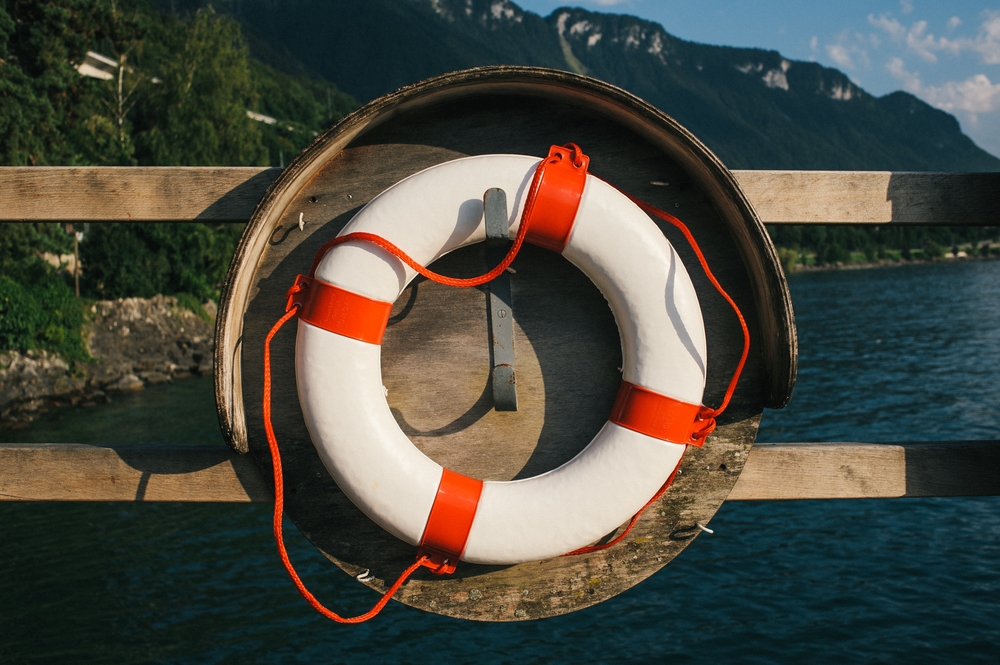Boat safety for carp anglers
 Having done a fair amount of boat fishing, I have suffered from a number of rather embarrassing accidents. Let me share here some thoughts that will hopefully make your boating less embarrassing than mine.
Having done a fair amount of boat fishing, I have suffered from a number of rather embarrassing accidents. Let me share here some thoughts that will hopefully make your boating less embarrassing than mine.
There are a number of creative ways in which you can literally lose the boat. It goes more less like this: you take your rods out in the boat, get back to the bank, jump out and try to put your rods on the stand. Something takes longer than usual, you faff with the line lay or the alarm and before you know it the wind or current has pushed your boat into deep water a couple of meters away from the bank. Now what? If this were to happen to you in some remote place, it may prove to be a rather serious problem. Imagine being stuck boat-less on an island in the middle of a river in October: not a pleasant prospect!
So the number one safety tip is: do not lose the boat! The obvious way to prevent boat loss its to make sure that the boat is securely attached to a solid mooring point on the ground at all times. I prefer to use a bankstick literally hammered into the ground but trees work equally well. If the boat is not attached to the ground, make sure it is attached to you! Whenever you leave or board your inflatable, make sure you hold the towline. If you are fishing with a dog, make sure the same applies when your dog jumps in an out of the boat. Dogs can give the boat a surprisingly hefty shove when jumping in or out, pushing it quickly well beyond your reach.
Some people think that dragging the boat onto dry land is a replacement for mooring: it is not! Water levels in rivers and barrages have a tendency to change, sometimes by several feet during the day. A boat resting on dry land, may become afloat several hours later and go on an exploration trip down the river. Now think of trying to find it…
Probably the most dangerous way to lose the boat is to fall overboard while the boat is under power. Should you be that unlucky, the boat may literally leave you stranded in the water and power off beyond the horizon. For this reason take extra precautions when standing in the boat and try not to fall out.
The next subject is that of life jackets or flotation aids. My advice is: use common sense. I fish solo and often miles away from the nearest human being. For this very reason I will wear my life jacket pretty much all the time when boating. Even if you are a competent swimmer, take into account that in heavy weather or at night you may be testing your limits.
Self inflating life jackets are on the surface of it a better bet: they are less bulky and offer more buoyancy when compared with flotation aids. The only issue is that they need to work, and I have heard of a number of cases where the jacket failed to inflate when submerged in water. For this reason I would suggest buying your life jacket from a reputable marine merchant and not skimping on it.
When operating a boat at night, it is rather helpful to have a light permanently attached to your bivvy to give you some bearing. You would be surprised how difficult it can be to find your way back to the shore in complete darkness.
Finally let me address some myths regarding boating in waders. Anglers will often need to use waders to get in an out of the boat. If the venue you are fishing has a wide shallow shelf next to the bank, you will need to push the boat out of the shallows to get it to sufficient depth for the boat to float. You can do it barefoot in summer, but think of doing it in March or November. Similarly, if the banks are steep or muddy, waders are the only way to keep yourself dry and keep boating.
Some people think that boating in waders is dangerous because, should you go overboard, waders will fill with water, become heavy and make you sink to the bottom. The truth is that, thanks to Archimedes law, water weighs nothing in water. If you want to test it, just chuck a bottle of fizzy drink into a lake and see how much it weights while submerged.
While waders are indeed adding weight, they will add less than what they weight on dry land, again thanks to Archimedes law. As an extreme case, neoprene waders are fairly buoyant and should you wear them, they would make you literally unsinkable.
Last but not least, pretty much all inflatables come with some sort of a detachable bench that you may be tempted to remove if you operate your boat solo and tend to sit on boat’s side. I would urge you to reconsider: should your battery go flat forcing you to use oars, you may find it almost impossible to row if there is no bench to sit on.